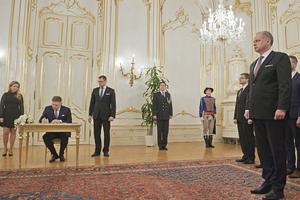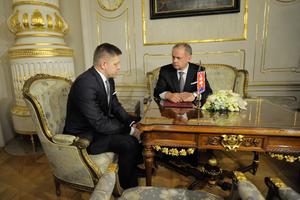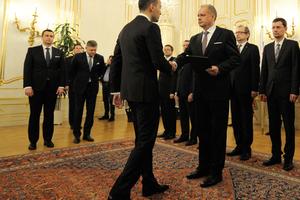On the evening of March 23, the outgoing cabinet made up of representatives and nominees of Smer officially concluded its four-year term, the TASR newswire wrote. At the same time, Kiska appointed Smer leader Robert Fico as leader of the new government and approved its composition. The government now has 30 days to bring its programme statement before parliament which then needs to express its trust in the cabinet.
The current coalition government is the government of a historical compromise, Fico said, as quoted by the SITA newswire. He added that he appreciated Smer coalition parties for “taking the wisdom into their hands and opting for the path of a stable coalition cabinet”, thanking them for the atmosphere of cooperation and compromises.
“When we look at the Tuesday events, we all will understand that Slovakia needs most of a stable government able to react to both domestic and foreign challenges,” Fico said, meaning the terrorist attacks in Brussels. He also stressed that leaders of coalition parties managed to agree quickly on programme priorities.
Fico has become prime minister for a third time, but following his previous one-party cabinet, he now heads a coalition one, composed of four parties: Smer, the Slovak national party (SNS), Most-Híd and Sieť (Network). Smer will have eight ministers, SNS three, Most-Híd two and Sieť one, the SITA newswire wrote.
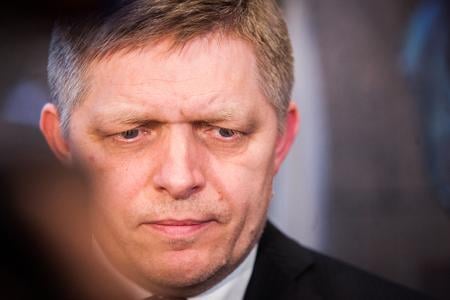
In his address, Kiska stressed that the members take over responsibility for the government and ministries after an election which made it clear that we need to increase the trust of people in a democratic political system.
“You are a government which has to achieve important results in several spheres,” the president said. “There is no other, shorter way to get people to stop looking for extreme measures.”
The president added that several former political rivals have been united in this government, and in the name of this connection, they had to make many compromises. However, in democratic countries, this is nothing unusual.
“There is no need to close our eyes from the fact that part of citizens reacted to this connection emotionally, with much distrust,” Kiska summed up. He also called on the cabinet members to become a government of all citizens, including those who refuse them.
Representatives of the four parties agreed on 11 programme priorities for the years 2016-2020. In foreign and European policy, this means a clear continuity of the pro-European and pro-Atlantic orientation of Slovakia, with updating of the country's security and defence strategy, and boosting care for Slovak expats also being agreed upon.
The new coalition will push through a joint anti-corruption programme; and the parties agreed to adopt an effective anti-shell-company law in relation to all public resources. Principles of open governance and the constitutional law on proving the origin of property have also been agreed upon. Offering and accepting unethical advantages shall also be prohibited by law, SITA wrote.
The division of ministries among coalition parties has shown that the fight against corruption and the foreseen changes in health care and education sectors are not a priority for the new government, opposition SaS party opined, as quoted by TASR.


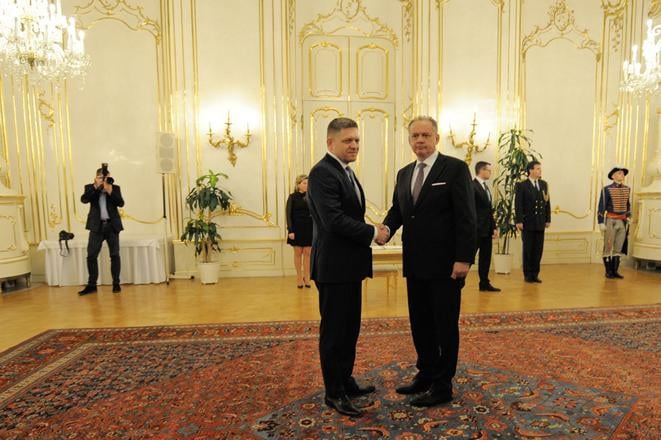 President Kiska appoints Prime Minister Robert Fico. (source: SITA)
President Kiska appoints Prime Minister Robert Fico. (source: SITA)
